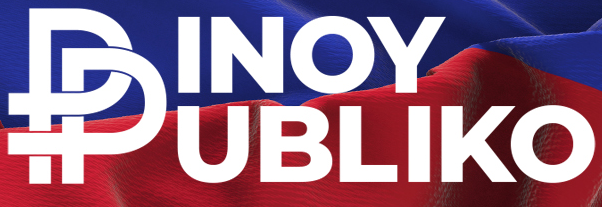When ideology is mentioned, political parties readily come to our minds.
However, the term “ideology” is conveniently avoided except perhaps by the Communist Party of the Philippines. It is because ideology gives that image of inflexibility and diminished freedom of choice.
It is this unfounded abhorrence for ideology that the ideology of the CPP remains unchallenged in the intellect of those on the left of the political spectrum.
This condition helps extend the life of a small but dedicated core proponent of armed struggle to achieve change in society. The NPA combatants are just the creation of that core, the CPP. That core survives by exploiting the economic and political ills of society.
How? By systematically theorizing on these problems as endemic in the present order of things and showing the continuing failure of government and the limitation of the laws in solving them.
Ideology should not be the exclusive domain of communists wherever there exists or there is a desire for democracy.
Democracy to the CPP, in accordance with its ideology of Marxism-Leninism-Maoism, is limited to gathering of opinions or suggestions from a prescribed structure while the decision making is reserved exclusively for the communist party in accordance with the Leninist concept of the dictatorship of the proletariat in the entire length of the road to the ideal communist state.
The National Democratic Front that is intentionally dominated by CPP party groups is really a front, an alliance, and a shield of the CPP that does not automatically make an armed rebel a party member unless a basic requirement of ideological schooling and acceptance is satisfied.
Our indigenous people who now comprise the largest number of NPA recruits in recent times are exploited by the CPP the most. They are turned into combatants without real participation in leadership. In the same context, it is almost impossible for the CPP to recruit Muslims who have been strongly dedicated to their faith even before the coming of Western colonizers.
Christian ideologues on the other hand have been incorporating, with revision, Marxism into their social teachings and practices as self-rectification for the historical use of Christianity by Western colonizers and imperialists in Asia and Latin America.
Capitalism in its nakedness is an ideology dedicated to the continuous generation of profit and the private ownership of the means and mode of production. Its concept of democracy is derived from and limited by these capitalist essentials.
For Marxists, the basic contradiction in the modern world is still between labor and capital that has reached its final stage in the form of imperialism on a global stage.
How Marxism is applied in particular conditions of nations and society is a continuing debate even among anti-capitalist and anti-imperialist ideologues like Jose Maria Sison.
The disintegration of the communist-run Soviet Union and the Yugoslavian federation into several independent nations and the growing primacy of nationalism even among communist parties in power like in China, Vietnam and North Korea have stopped material support for Marxist revolutions, national liberation movements and people’s struggle in other countries like the Philippines.
Non-interference in each other’s internal affairs is now given more weight, something that Joma actively criticizes as revisionism and by which he justifies the need for a continuing revolution that he leads ideologically in the country and posits internationally.
In the realm of systems of thoughts and ideas, a working ideology has a focal point of interest. It is either political, economic, or even religious.
However, it always has some basic components, like a fundamental set of values and a program of action. The more advanced ideologies have a profound concept of social development and a well-studied historical perspective.
Nationalism as the ideology above all others is on the rise all over the world. Nations are holding tight to their own national interests for their survival and continuing progress given the limitations of the present world.
Marxism-adherent Vietnam, for example, has defined its nationalism as its main contribution to the world, a new internationalism that places internal stability and productivity as primary concern no matter how capitalist characteristics evolve in their economy and way of life in the process. Now best practices in Vietnam are even taught to the country’s government executives.
Filipino nationalism can be a uniting ideology despite a multi-party system that can even include a Marxist or a communist party as no law prohibits that now, provided the Constitution and the laws are honored and followed.
Of course, Joma and the CPP will not buy that. That is just being faithful to their kind of ideology that places seizure of political power by armed struggle as an indispensable task.
Para sa reaksyon o komento at tanong mag-email sa admin@pinoypubliko.com





